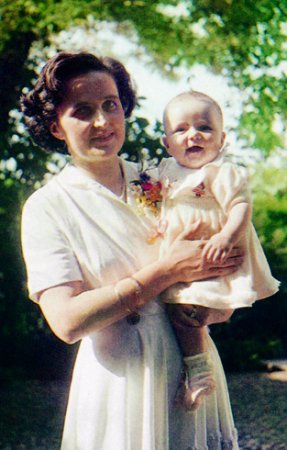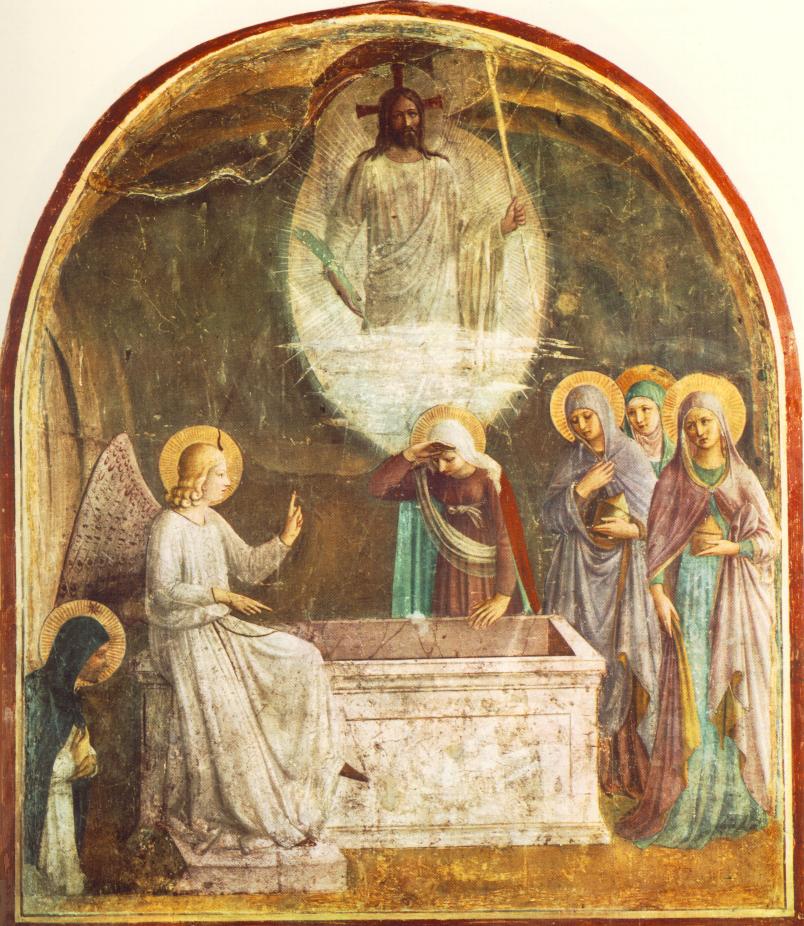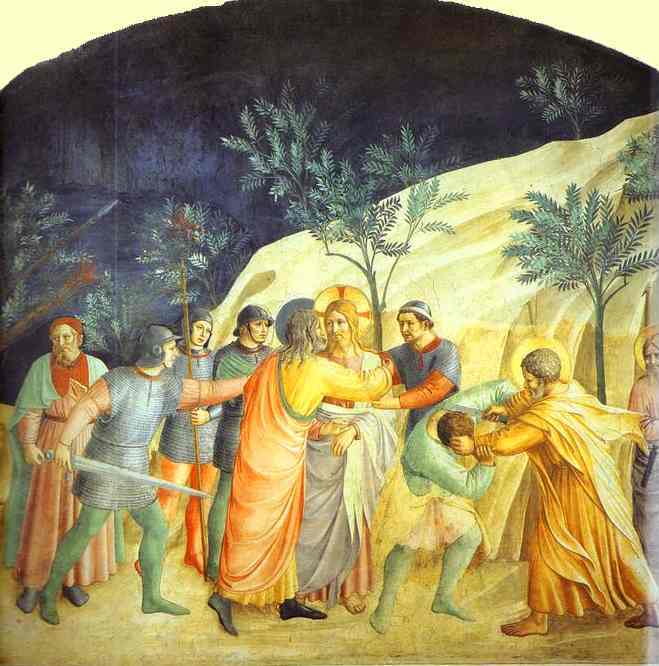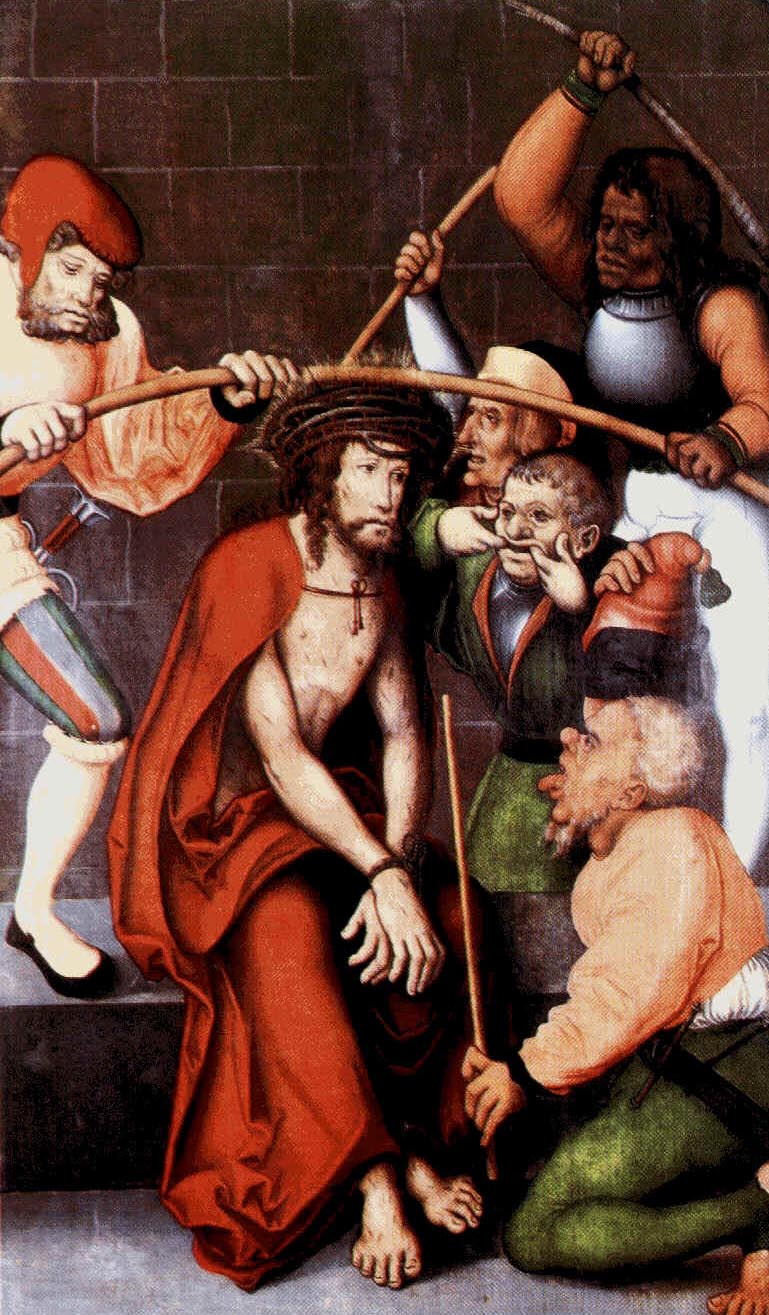Later St. Peter sent St. Mark to Alexandria, where he was the first to preach the Word of God. According to Simon, an old Jew who witnessed the labors of Mark in that city, an enormous multitude converted there as a consequence of the apostolate of St. Mark.
St. Peter Damian wrote that God gave St. Mark a special grace by which all the people he converted in Alexandria took up monastic customs. He inspired them to this by his miracles and the example of his virtues. After his death, his relics were sent back to Italy, so the land where he wrote his Gospel had the honor of preserving his body.
St. Peter consecrated him Bishop of Alexandria. In this city the zeal of St. Mark attracted the hatred of the priests of the false gods. On Easter in the year 68 AD, they seized him while he said Mass, and tied a rope around his neck. Then they dragged him through the city like an animal to slaughter. His body was lacerated by the rough rocky surface and his blood stained the roads.
In the prison where they threw him, he was consoled by an Angel. Then Our Lord deigned to visit him and told him: “Peace be with you, o Mark, My Disciple and My Evangelist. Fear nothing because I am near you.”
The next day the pagan priests again placed a rope around his neck and dragged him through the streets of the city. This time his strength gave out and he died, saying: “Into Thy hands I commend my spirit.”
The air became turbulent, and lighting and thunder broke through the sky. His assailants, who had planned to burn his body, all fled. Thus Mark’s disciples were able to collect and piously bury his remains.
Comments of Prof. Plinio:
You know that Alexandria was one of the largest cities of Antiquity. It was a city famous for its culture, wealth, and political importance, as well as for the pomp and luxury of its inhabitants. At that time Paganism was different from modern Paganism, which is noted for its vulgarity, banality, and equalitarianism. Paganism then was set in fabulous richness and luxury. It used to make a similar show of an elaborated culture. This pagan display of splendor brought great importance to many of the cities of that time and made them shine before the world.
These important cities were also the most difficult to convert. St. Mark, however, was able to convert many people of Alexandria. Soon after he arrived, many people changed their lives and took up monastic habits. You can easily imagine the sharp contrast this dignified, serious, chaste and austere life made with the dissolute and exorbitant way of life of the local social elites.
The life of those elites was quite censurable. It seems useful to give you an idea of how it was. The Romans had conquered all the countries around the Mediterranean Sea, which they called mare nostrum [our sea]. For this reason those countries had the tendency to adopt Roman customs.
For example, the elites used to have evening banquets and parties in palaces with garden courtyards. With the agreeable evening air of the sea, the doors of the palaces would be open. Such parties frequently lasted all night, ending at dawn with the family members and guests spread throughout the gardens, drunk and unconscious, lying here and there alone or entwined with others in dishonorable postures to be picked up by the servants and taken to their own beds.
At those bacchanals, they used to eat and drink until they were satiated. They would recline in a kind of chaise longue called a triclinium that could accommodate two or three persons. The ambience was what I imagine would be the boîte [night club] of our days. There were performances of music, poetry, songs, sometimes even gladiators for the amusement and enjoyment of the guests. Throughout the party all were eating and drinking.
When someone had gorged himself on food and drink and could take no more, there were places like our restrooms where slaves would tickle their throats with a feather so they could vomit everything. Then they would clean themselves with water and perfumes, dry their hands in the long hair of women slaves who were there for that purpose, and return to the banquet rooms to eat and drink again.
The moral ambience of the lower levels of society was also repugnant. The slaves were very numerous, since almost every free man of the elites or middle classes had more than one slave. But they were not treated as human beings. They were considered the objects of their owners. The slave had no rights to marry or have a family, no rights of parents over children. A child belonged to the owner of his parents like a fruit belongs to the proprietor of the tree. The owner used to take what he wanted from the family of the slaves. He could even kill the slave, which was not considered a crime.
This was the bestial and decadent world of Paganism. The world of the Alexandria when St. Mark came to preach in it.
You have to imagine this opulent city of Alexandria when St. Mark first arrives with his great dignity. He is there for the first time walking through its streets, let’s suppose, at 4 p.m. with the sun still shining. A Jew, with his beard, his stately bearing, his sanctity, his spirit of recollection, he approaches a first group of people, finds them open to him, and begins to preach. Some of the wayfarers laugh of him, others are indifferent, but one here, another there, come to joint the small group that is already listening to him. In a short time he has a circle of people around him. He finishes, bids farewell to his audience, and goes to a modest inn.
People start to talk about the things they heard, about Our Lord Jesus Christ, His cross, the need to follow a way of austerity, chastity, and sanctity. Grace accompanies the words of St. Mark, and those people for the first time contemplate a completely different life. Here is a wife who was abandoned by her husband, there is a young man whose eyes begin to open to the gross immorality of this society, further along is a drunk who stops to see what was going on.
The words of St. Mark open a new perspective of eternal live. He speaks about a spirit that is not material, he speaks of the resurrection of the body, of Heaven and eternal happiness, and also of Hell and Purgatory. He explains that there is a God who is Goodness, Justice and Wisdom Itself to whom we should pray and ask for help. He speaks about Our Lady and the Sacraments, the Holy Eucharist, Confession and the great privilege it is to have our sins forgiven. To a man accustomed to the orgies of Alexandria, these topics cause contradictory reactions. One feels an irresistible attraction, and another a complete repulsion.
This illustrates how the action of grace over the words of St. Mark could have converted many people. It also makes us understand how his words and his presence constituted a problem for the entire city of Alexandria. He gained so many followers that from that time onward the Catholic Faith was established in the city. But he also generated an immense hatred against him, and these people decided to kill him.
It is clear that he came to divide, to separate. He created an unsustainable situation for those who did not want to follow him. The result was that they began to plot to kill him. This explains, until the end of time, what happens to all those who follow the model of Our Lord Jesus Christ.
There is a similarity between the great mission of St. Mark and our more modest mission, we who fight against the modern world. In many ways, the present day world is much worse than the Alexandria of that time. Today’s immorality, I could sustain, is much worse than it was at that time. But I would focus on another point: the indifference of the modern world. In that time St. Mark was able to convert multitudes, in modern times you can consider the apathy of the world in face of the miracles of Lourdes, the great miracle of the sun at Fatima. The normal modern man doesn’t care about them and doesn’t change.
Another point, St. Mark suffered martyrdom and his body was received with veneration by the Italian people who dedicated a city to him: he became the patron of Venice. Today, the Monophysitist Coptic sect is trying to have the body of St. Mark returned to Alexandria. In 1968 Paul VI already gave the precious relic of the head of St. Mark to that sect. The reaction among the Catholic public was very weak, almost complete indifference.
From this we can see that, worse than the times of St. Mark, today we have doctrinal corruption that has penetrated the Holy Church. She should be the sun of sanctity, and today she is infiltrated by enemies who disfigure her. The Progressivism that controls the Catholic Church today is an expression of the modern world. It is worse than the world of St. Mark.
Just as St. Mark had the obligation to fight against the corrupt world of his time, we have the duty to fight against the enemies who brought this corruption inside the Church. And because we are convinced that we are incomparably less than St. Mark, we should ask him to help us to conquer ourselves, to overcome our own miseries, so that we might be able to defend the Church against her enemies.














